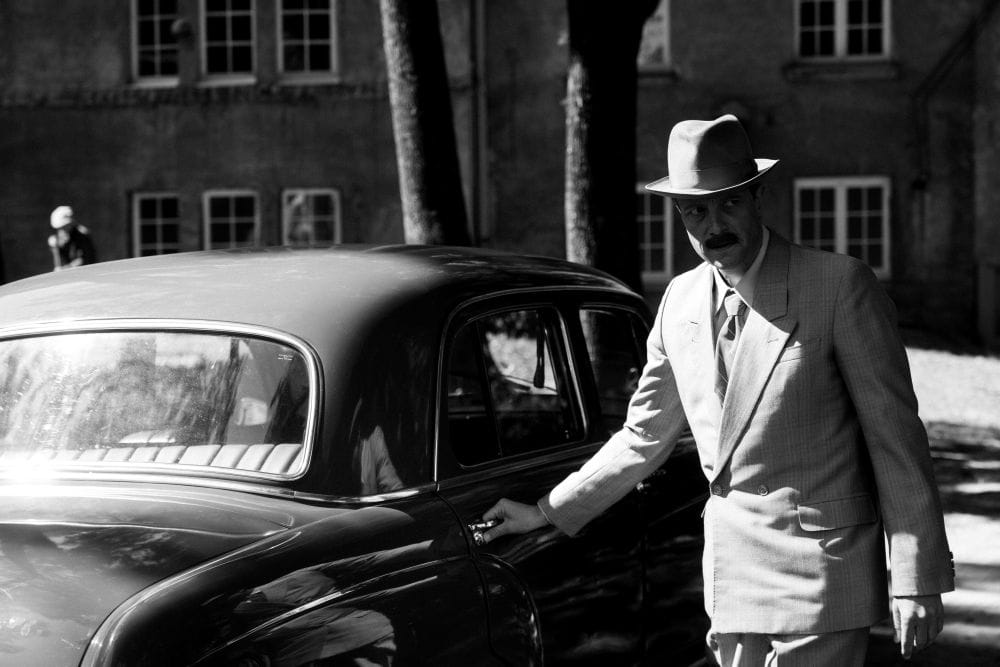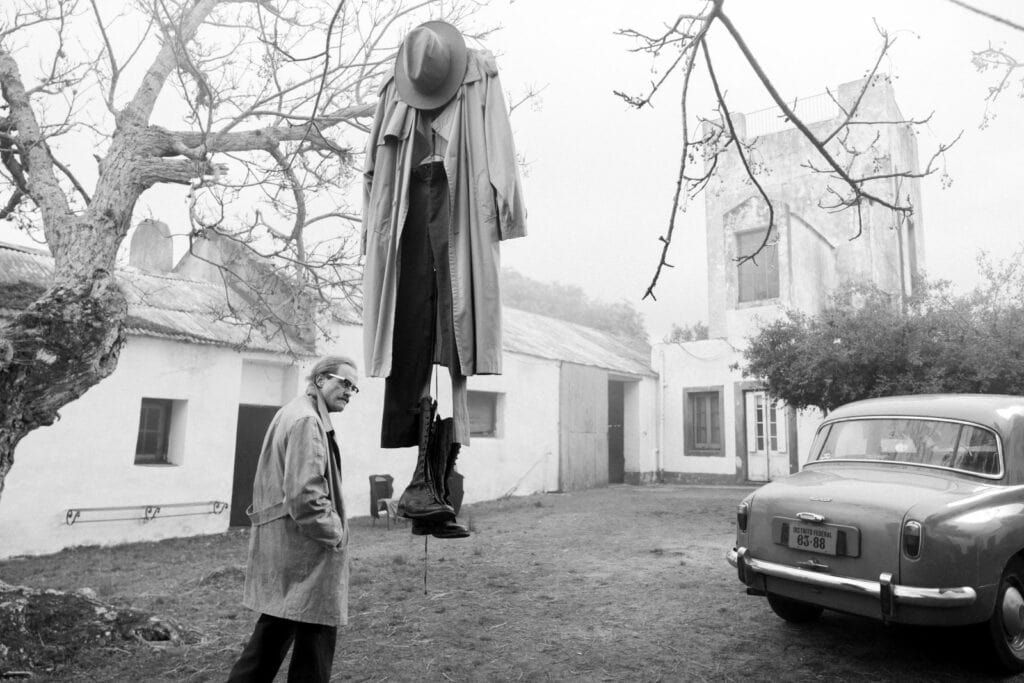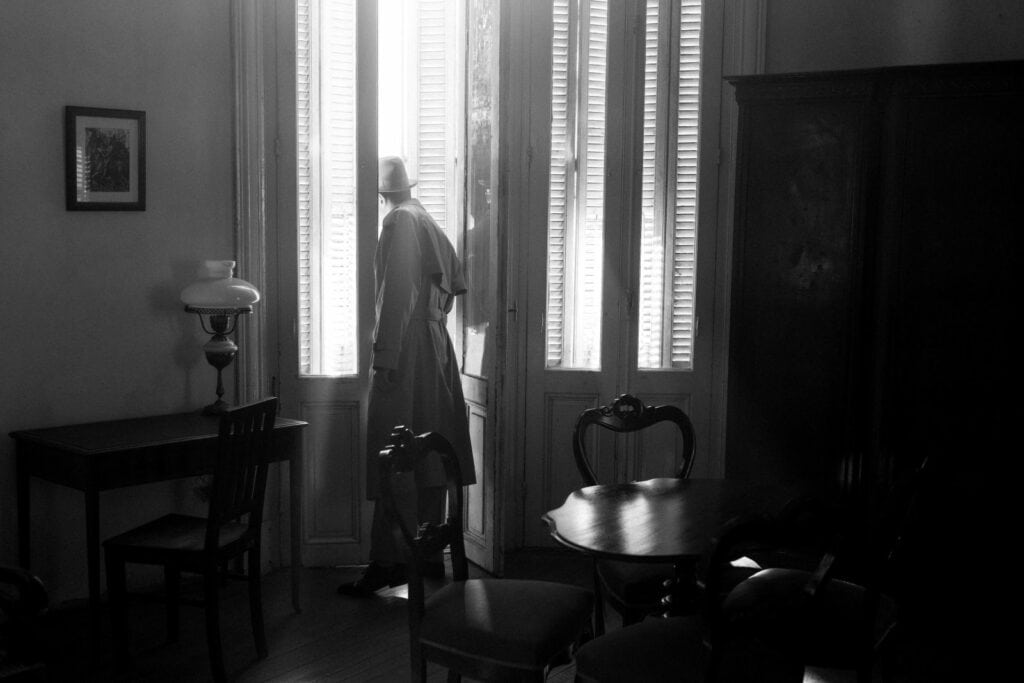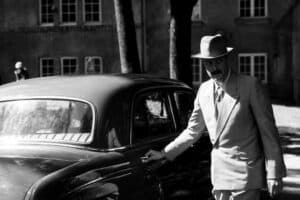
This feature is the second in our summer series, La Dolce Vita: A Celebration of Italian Screen Style, in partnership with Disaronno.
Not once during Paolo Sorrentino’s sprawling urban symphony, The Great Beauty, does Jep Gambardella (Toni Servillo) ever hop in a car. Walking is the man’s only means of travel – an occupation and a spiritual imperative. Bedecked with an endless collection of blazers, pocket squares and two-toned brogues, the 65-year-old one-time novelist-turned-occasional reporter saunters into the film as a flâneur, strolling aimlessly around Rome in a state of heightened receptivity to all the stimuli of its streets.
“The world reveals itself to those who travel on foot,” Werner Herzog once mused, and so it is for Servillo’s professional wanderer, who doesn’t seem to live in so much as commune with the city. No walk is ever wasted, every corner hides something strange: a nun picking oranges from a tree; a child whispering from inside the crypt of a Renaissance temple; a giraffe in the Baths of Caracalla.
Sorrentino trades a tourist-friendly travelogue for a more disquieting, entrancing journey, and that’s his primary achievement. The Great Beauty makes a familiar place seem new and surreal; it’s that rare film that’s susceptible to the magic of things that often go unnoticed.
Get more Little White Lies
Like Federico Fellini, whose 1960 film La Dolce Vita stands as The Great Beauty’s undisputed touchstone, Sorrentino was not born in the Italian capital but moved there in his youth, and he immortalises it with the look of an outsider stunned by all its riches and mysteries. This is his fifth feature lensed by Luca Bigazzi, who here traffics in the same elegant crane and dolly shots that marked their earlier collaborations.
But where the sinuous camera movement in 2008’s Il Divo and 2011’s This Must Be the Place might sometimes register as ostentatious, in The Great Beauty form is entirely in service of the story. As the camera glides in and out of churches, palazzos and rooftops, Sorrentino conjures a magpie curiosity for the world that dovetails with Jep’s own journey: a man who gradually awakes to the splendour that surrounds him, and turns it into a source of creation.
Still, Sorrentino’s love for Rome is not reverential. Throughout the film there are moments – a man washing his face on the monumental fountain on the Janiculum hill, a woman reading a newspaper huddled next to a statue – that seemed designed to demystify its centuries-old architecture. Enthralled by the city as he unmistakably is, Sorrentino captures it not as an inert backdrop, but a place that exists in symbiosis with its residents.
For a work haunted by death – one that opens with a fatal case of Stendhal Syndrome – The Great Beauty accrues a life-affirming power. If there’s anything truly decadent in Sorrentino’s universe that’s not Rome and its weathered monuments, but the fatuous, navel-gazing aristocrats Jep fritters time with. It stands to reason that his wardrobe – replete with the fedoras and brightly coloured jackets of a mid-century dandy – should set him apart from the more sombre outfits of those around him.
Like everything else in this spell-binding film, Daniela Ciancio’s costumes aren’t beautiful for beauty’s sake, but suggests a vitality that befits the story of a rebirth. Their old-fashioned charm is in keeping with Sorrentino’s grand design. The Great Beauty isn’t a mere elegy for lost time; it’s a tribute to an ancient, more open way of travelling through and looking at the world.
To find out more about Disaronno’s 500-year anniversary* celebrations, visit disaronno.com, and join us at Regent Street Cinema on July 4 and 5 for special free screenings of The Great Beauty and La Notte, with complimentary cocktails from Disaronno.
*1525: The legend of Disaronno begins.







